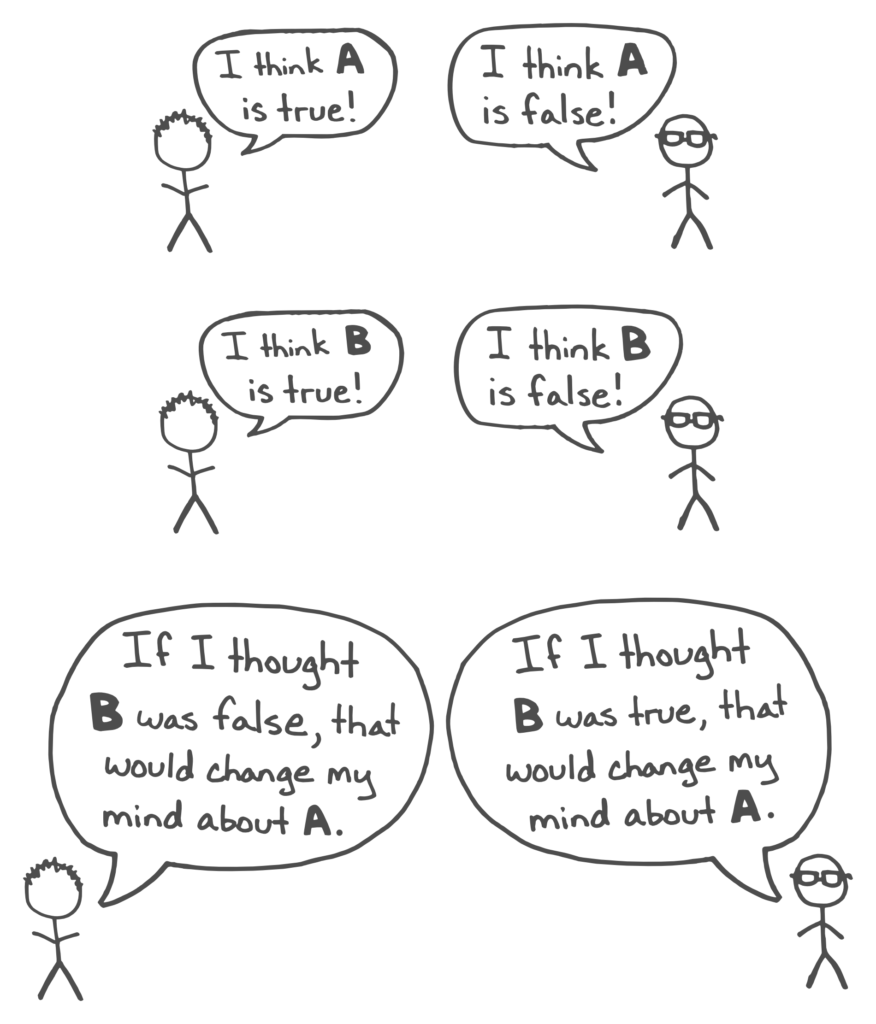Perhaps your friend–let’s call him Karl–thinks that a single payer system is the best health care system. Perhaps another friend–let’s call him Friedrich–disagrees and believe more free market systems work better. Karl thinks that Friedrich doesn’t care about poor people. Friedrich think your friend is naive in believing that the government would do a good job running the US health care system. How do you resolve this dispute?
First off, resolving the dispute will depend a lot on both of your frames of mind. According to Duncan Sabien at Less Wrong, disputes are easiest to resolve when both sides have: (i) “epistemic humility” and can at least consider the case that they could be wrong, (ii) good faith that the other side has valid reasons for believing what they do, (iii) believe that there exists an objective truth, and (iv) there is a desire or at least a curiosity to uncover the truth.
In these cases, the Double Crux can be particularly useful. Let’s return to the debate about a single payer health system. Let’s say that Karl believes in a single payer system because they care about the poor. Friedrich could inquire whether if he could show that a different, more free market system would also provide health care for the poor, would Karl be willing to consider other options. Karl could inquire as to whether Friedrich would change his mind if he could show government health care systems can be efficiently run.
This is the soul of the double crux. If you have different beliefs about a certain topic (e.g., single payer systems), there are likely causes to justify these believes. If both sides can agree that refuting the underlying arguments would convince the other person to change their mind, you’ve arrived at a double crux. Let’s view this in a cartoon:

Today is Joe Biden’s inauguration as President. Over the next 4 years, there will be a lot of debate about what the country should do. Moving away from partisan rhetoric and slogans and moving towards informed policy debate would be one step in the right direction. Even if you aren’t a politician however, you can use the double crux technique in discussing issues with others you encounter in your daily life. It will lead to more pleasant, enlightening conversations with those who have opinions that differ from your own.
If we can move the debate to a place where, instead of fighting over the truth, we’re collaborating on a search for understanding, then we can recoup a lot of wasted resources.
Resolving disputes rationally posted first on https://carilloncitydental.blogspot.com
No comments:
Post a Comment